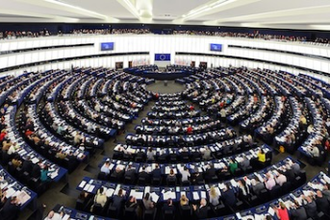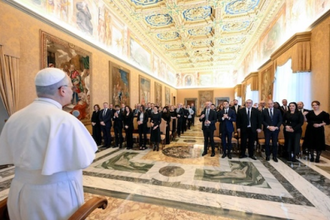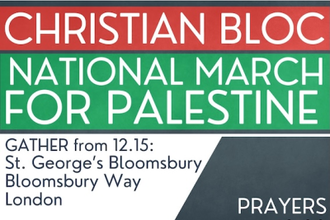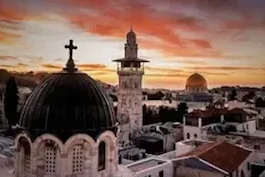Irish Bishop: Europe risks fracturing as solidarity fades
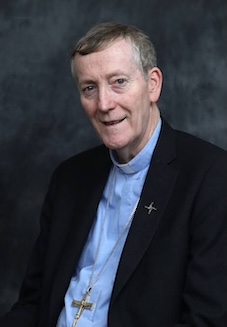
Bishop Denis Nulty of Kildare and Leighlin. Image: CCO
Source: Irish Catholic Media Office
Bishop Denis Nulty gave this homily at the Cathedral of the Assumption of Blessed Virgin Mary, Carlow on Sunday.
My father always told us there were many ways to ask a question. I suppose that was at a time in our lives when we were asking too many questions! The lawyer asks Jesus in Luke's gospel: "and who is my neighbour?" And in answering it, the story of the Good Samaritan unfolds. We might imagine the question going through the mind of the priest and Levite was: "if I stop to help this man, then what will happen to me?", while the good Samaritan reversed the question: "If I do not stop to help this man, what will happen to him?" Perhaps the parable actually asks a very different question than the one "And who is my neighbour?", but more pointedly "how can I be neighbour to the one in need?"
Fratelli Tutti reminds us we are all changed by coming into contact with suffering. In these days of so many Lourdes pilgrimages, nowhere more evident than Lourdes to see how suffering can soften even the hardest heart. Luke's parable is a reminder that despite the individualism of today's world, no one person is an island, each of us is a piece of the human continent. While the global pandemic of recent memory tweaked the dial ever so slightly on individualism, as for a time we all looked out for one another, there seems to be that perennial danger of reverting to a default individualism that would still leave that poor man abandoned on the road from Jerusalem to Jericho.
As people of faith our focus must always be on the one lying on the ground, the one roughed up and left to die. Loving God and loving neighbour is in many ways very simple, while equally carrying huge complexities. We see it too often across Europe where solidarity can be in short supply. We hear it in the rise of the 'far-right' where creating fear is their mantra. It is not the kind of Europe our founding fathers, inspired by Saint Columbanus, envisioned and the kind of Europe we strive to live in today. We see it in a burnt-out Gaza where the already displaced and starving are asked to make do with less. We see it in a Ukraine under a constant barrage of nightly attacks. Europe risks fracturing at the edges, because individualism has been allowed to trump solidarity. Investment in the armament industries at the expense of humanitarian budgets is chilling. It used to be "not in my back garden", now it could easily be "not welcome in my country". The man roughed up on the road to Jericho would remain so.
Columbanus came from Carlow. It was here in this place he was nurtured and reared. Every Columbanus Day, since its first iteration, twenty-seven years ago, has spoken to a part of the life of this European Saint, we all have good reason to claim as our own - Annegray, Fontaine, Luxeuil, Saint Gallen, Bregenz, Milan, Bobbio. To our shame in Ireland Columbanus is much more honoured in the countries of his adoption than in the country of his origin. We need to do the maths, a favourite subject of Pope Leo, Columbanus was 47 years on this island, only 25 years on the European Continent.
It is suggested he came from a family of six, five boys and a younger sister, he being the youngest boy. He was named Colman after his uncle, Colman of Cloyne. He took Columban or Columbanus as his name in religion when he was ordained in Bangor by Comghall around 575AD. We have Jonas of Bobbio, the Italian monk, author and abbot, to thank for perhaps an over dramatic account of Columbanus' final parting from Myshall. Having told his mother of his desire to pursue a monastic vocation, she burst into tears, threw herself on the threshold of the door of the ringfort compound, in an attempt to block his exit. He told her not to grieve, stepped across her prostrate body and set off northwards. As they say the rest is history, never to return to these parts again. A journey that would take him to Clonard, Cleenish, Bangor and later onto the high seas.
It is said that those who go by the sea make paths of their own. While we owe a huge debt of gratitude to the Friends of Saint Columbanus, north and south and across the continent, for the work done on the Columban Way, Turas Columbanus, Via Colombani; we also have to accept we can't know the exact path across the seas. A headwind or a tailwind could have blown Columbanus and his twelve companions off course in any direction, but they landed on the Breton coast, modern day France.
His message was uncompromising. He didn't hold back. Had he met the priest or Levite on that road from Jerusalem to Jericho they would have no doubt what being a neighbour to the one in need entailed. For Columbanus Christ was always the anchor and centre-point of his mission. He offered an example, an austere example of humility, penance, modesty and charity. This example attracted many and so monasteries were established in the years that followed.
Pope Benedict in his beautiful Angelus Address on 11 June 2008, spoke about Columbanus introducing private and frequent Confession to the Continent. I was amused at Columbanus scale of penances, Pope Benedict suggested they were tariffed because of the proportion between the gravity of the sin and the type of penance imposed by the confessor. Penances that would be abhorred today.
The XXVI Columbanus Day comes in the middle of the Jubilee Year of Hope. The particular theme that encompassed every element of this three day celebration was 'walking together in hope'. Columbanus and his companions arrived on the shores of Continental Europe at a time that was anything but favourable for Christianity. They were very much the Dark Ages. Columbanus was a glimmer of hope in those dark times, like the Good Samaritan on the road from Jerusalem to Jericho. We are each called to be that glimmer of hope, to be that neighbour to the one in need. Bishop Denis Nulty is Bishop of Kildare And Leighlin




